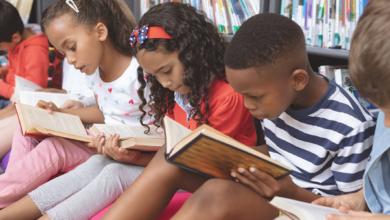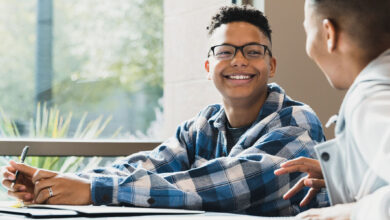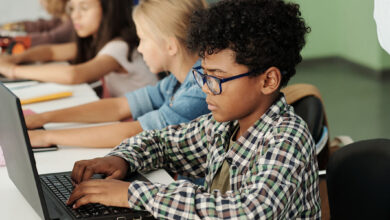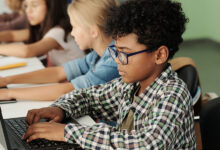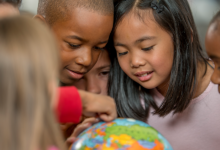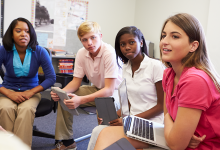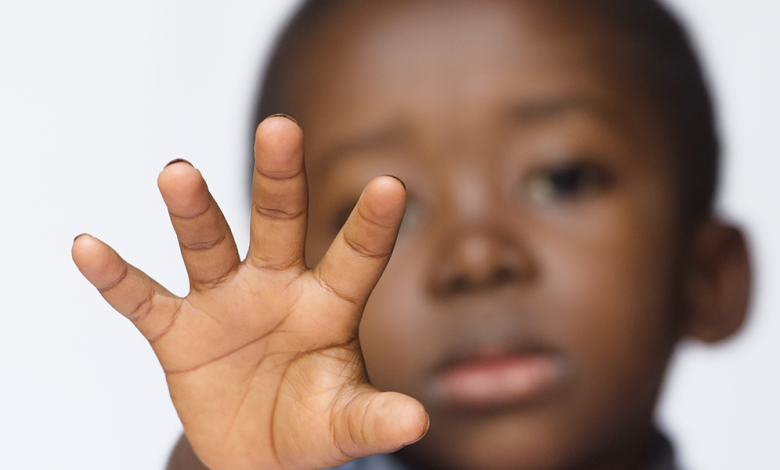
By Audrienne Womack
Most students have been learning virtually for over a year now, due to Covid-19. It’s probably fair to assume that most students have adjusted favorably to the expectations of online learning whether they wanted to or not. With caring and well-prepared teachers, most students are being exposed to grade-level lessons and activities. However, even though students appear to be more familiar with educational platforms, learning apps and are more tech-savvy than ever before, we can’t assume that they are still not being affected by the Pandemic and all the things they have given up since it began. Students now sit for long periods and movement between and during class is minimum and if they get too fidgety or distracted, they could be called out for it. Recess is a thing of the past and Physical Education is reduced to what can be done in front of the screen.
As parents and teachers try to juggle their children’s lives in front of the camera as well as behind the camera, we also have to take into consideration their social-emotional development, even more so, now that we are in a Pandemic. According to CASEL (Collaborative for Academic, Social and Emotional Learning), the leader in the field of Social Emotional Learning (SEL), SEL “is the process through which children and adults acquire and effectively apply the knowledge, attitudes, and skills necessary to understand and manage emotions, set and achieve positive goals, feel and show empathy for others, establish and maintain positive relationships, and make responsible decisions.” Helping students learn how to manage Social Emotional Learning will help them to better process and navigate through the current health plight, as well as how to succeed in school and life, long after the Pandemic is finally behind us.
One of the most important ways to assist students during the Pandemic is to work with them in learning how to manage their emotions. Even though many students have been attending school online for over a year now and many have become quite adjusted to learning virtually, we still have to check in with them often and gauge how they are feeling. We have to notice any change in their behavior and allow them to move periodically after sitting during their online classes or to take movement breaks on purpose. Other ways to help students manage their emotions during this time, is to help them in identifying and labeling their emotions. We could be of great assistance to them if we help them to recognize how they are feeling and commend them for taking responsibility for those emotions. For example, “I am feeling grumpy today because I didn’t get enough rest last night.” For those feelings of fear, anger, and/or sadness we can guide them in finding strategies that could make them feel better or practice ways to calm them down by journaling, soothing exercises, mindfulness meditation, and deep breathing.
Another great way to support our children’s Social Emotional Learning especially during this Pandemic is to help them to continue developing their self-esteem. According to an article in ‘verywell mind’ an online developmental psychology website, “The concept of self-esteem plays an important role in psychologist Abraham Maslow’s hierarchy of needs, which depicts esteem as one of the basic human motivations.” The article goes on to say that, “Maslow suggested that individuals need both appreciations from other people and inner self-respect to build esteem. Both of these needs must be fulfilled for an individual to grow as a person and reach self-actualization.” So as we think of ways to develop self-esteem within our children, they can feel good about accomplishing tasks, as well as feeling good about the accolades that could result in carrying them out.
So for example, giving children more responsibilities around the house, no matter how big or how small, is a productive way to help them in feeling good about themselves. Allowing our children to take on more responsibilities will make them feel like contributing members of the household, and this will directly increase their self-worth and value within the family. Allowing them to make age-appropriate choices will also make them feel like a respected contributing member of the family, as well. It is also beneficial to teach them how to think through their decisions and to come up with options that they have decided upon on their own. Most importantly, when they can make choices and fulfill their responsibilities around the house, it is equally important for us to show our appreciation towards them for helping out and for the effort they display.
Another way to support our children by developing their Social Emotional Learning is by working with them in building empathy. According to Wikipedia, empathy is “the capacity to understand or feel what another person is experiencing from within their frame of reference, that is, the capacity to place oneself in another’s position.” This is not always easy to do, since it’s all a child can do to think about how they are feeling, let alone think about how someone else may be feeling. As stated in the Encyclopedia of Social Psychology, and reported by Hodges and Myers, “Empathy is often defined as understanding another person’s experience by imagining oneself in that other person’s situation: One understands the other person’s experience as if it were being experienced by the self, but without the self experiencing it. A distinction is maintained between self and other.” Being empathetic to another human being is a trait we want all of our children to possess.
So, when we continue to openly discuss the Pandemic and how it can affect others, we can then begin to have our children think about how it could feel to walk in someone else’s shoes. If the person is someone the child knows then we could brainstorm ways in which they could help them or offer a word of kindness by phone, text, email, social media, etc. We could even teach them the skill of “active listening” and let them understand the value of being supportive in our silence. This type of life skill is something that can be used throughout their lives, for the rest of their lives and can be applied to numerous everyday situations.
Another valuable strategy that we can model and share with our children is the use of “self-talk.” Some may call it “talking out loud” and back in the day, it could have been referred to as “talking to yourself.” According to the media organization Psychology Today,“ Many people are conscious of an inner voice that provides a running monologue on their lives throughout the day. This inner voice, our self-talk, combining conscious thoughts and unconscious beliefs and biases, provides a way for the brain to interpret and process daily experiences.” Today we have come to realize the benefits of it, and it teaches our children how to better associate their words with their feelings. For example, when you are in heavy traffic you could model by saying, “This traffic is so backed up, and I’m going to be late. I’m feeling angry that we can’t move faster, so I’m going to take a deep breath and turn on the music to calm myself down.”
This quick commentary will help in teaching our children words that can be associated with their feelings, as well as possible strategies that can help in calming them down, like deep breathing and listening to music. Practicing “self-talk” often with our children, by modeling and by allowing them to practice so that it will become a useful tool that can be used to regulate their emotions when needed, will be invaluable. Helping our children learn to manage their Social Emotional Learning has benefits that can take them far beyond the Pandemic, but while we are still in it, we must help them to understand and handle those emotions so that they can have less emotional stress, make responsible choices and decisions, feel better and show empathy for others and most of all so that they can work successfully towards academic achievement.
Working with our children to use and practice Social Emotional Learning strategies and being observant of their online behavior will improve their academic performance greatly. Observing our children and frequently checking in on them, will help to establish that they are managing their emotions in productive ways. As a result, they will be better prepared with practical tools at their disposal that they can readily use when they gradually return to in-person learning. Maya Angelou warmly reminds us, “No matter what happens, or how bad it seems today, life goes on, and it will be better tomorrow.” In no way will Social-Emotional Learning stop once children return to school, but for now, it will ensure that they are getting a rewarding online learning experience that will impact them daily.


